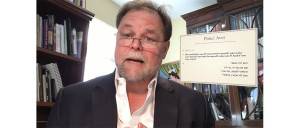It is time for the Reform Jewish Community to answer the call to the college campuses across the country. It is time that we commit to placing a Reform Rabbi on each campus with a significant Jewish student population. The goal should be to establish an endowed position so that the Reform voice will be heard. This Reform Rabbi will work with Hillel, but not for Hillel, freeing the rabbi to speak and act according to the best ideas of Reform including inclusivity, embracing modernity and Israel. Funding will come from donors who have a vested interest in their school of choice and the students who live and learn there. These groups include: Parents of Students, alumni and the students themselves.
There is an active battle underway for the hearts and minds of the college students. College is a critical juncture in their development as thinking, feeling people. We have a profound investment in the outcome. These young people represent the future of the Jewish people in America and therefore an important future voice of world Judaism. If they do not develop connections with their Jewishness or with the state of Israel, then this generation will not embrace either their Judaism or Israel when they take the reins of leadership from us. If we do not demonstrate in meaningful and tangible ways that we care passionately about our young people, it is left to others to influence the conversations on campus during this critical period of identity formation of our students.
We know that we can act boldly and when we do, we offer a vision that others will see and support. Whether or not you agree with him, Mr. Sheldon Adelson has clearly demonstrated both a passion for what he believes, and the ability to galvanize others into action, raising vast sums of money for his limited college vision. We are equally invested in our children and the future, which rests on their shoulders. It is time we rise to the occasion and stake a claim on our kids and our future.
Rabbi David M. Levin
this letter was sent to the leadership of the Reform Movement including CCAR, HUC and URJ

